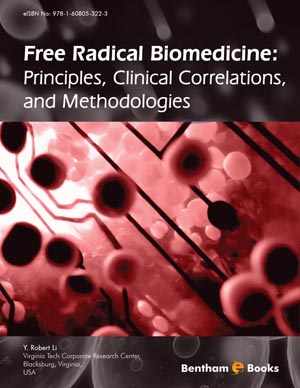Abstract
Due to their essential roles in diverse physiological processes, the liver and the gastrointestinal system are the major sites of many common diseases. Multiple pathophysiological mechanisms have been identified to underlie various hepatic and gastrointestinal disorders. This chapter discusses the oxidative stress mechanism in the disease processes of hepatic and gastrointestinal systems and introduces antioxidant-based modalities for the disease intervention. The disease entities covered in the chapter include alcoholic fatty liver disease, nonalcoholic fatty liver disease, Wilson’s disease, liver ischemia-reperfusion injury, drug/xenobiotic-induced hepatotoxcity, inflammatory bowel disease, peptic ulcer disease and Helicobacter pylori infection, and gastroesophageal reflux disease.
Keywords: Alcoholic fatty liver disease, Antioxidant intervention, Gastroesophageal reflux disease, Gastrointestinal diseases, Helicobacter pylori, Hepatic diseases, Hepatotoxicity, Inflammatory bowel disease, Liver ischemia-reperfusion injury, Nonalcoholic fatty liver disease, Oxidative stress, Peptic ulcer disease, Reactive nitrogen species, Reactive oxygen species, Wilson’s disease.






















